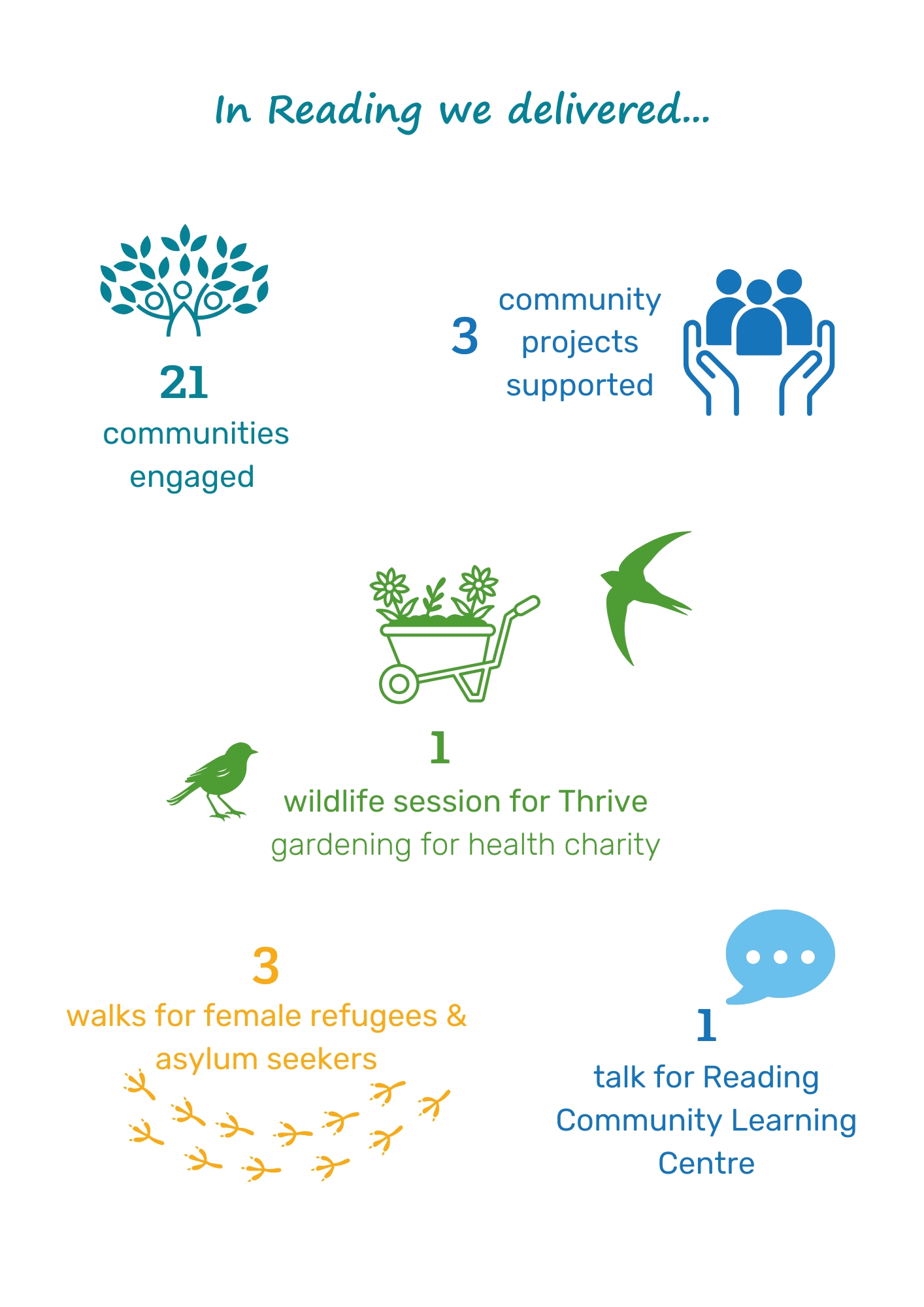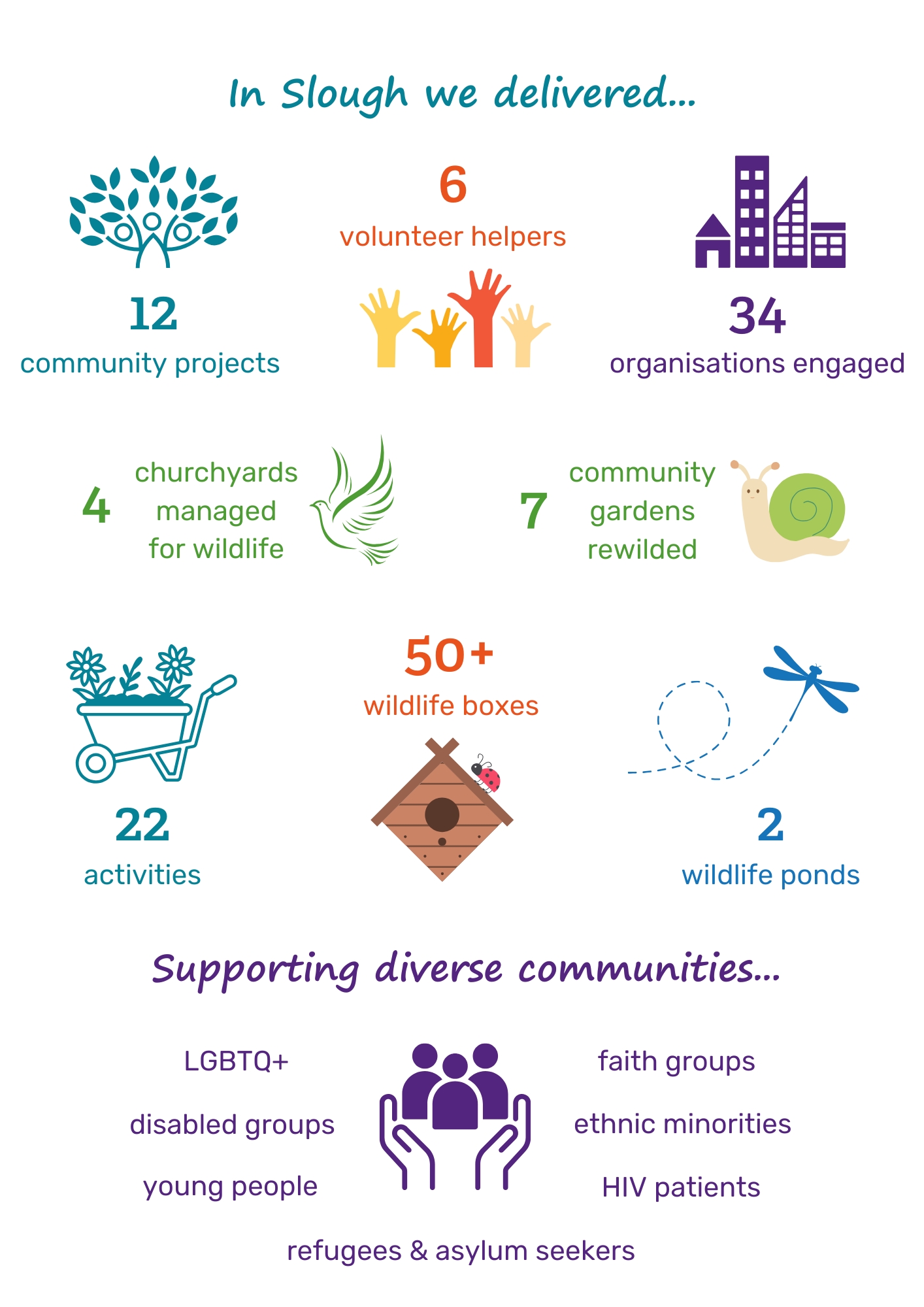In 2022, The Wildlife Trusts were awarded a £5 million grant by the National Lottery Heritage Fund to improve the lives of people from some of the most disadvantaged areas across the UK and leave a lasting natural legacy in honour of the Queen’s Platinum Jubilee. £90,000 of this funding was given to BBOWT to work with marginalized communities in Reading and Slough.
Nextdoor Nature aimed to bring more nature to where people live and work, and empower local communities in Reading and Slough to take action for nature in their local area by co-creating projects with them. Over the two years, BBOWT worked with groups including ethnic minorities, people with disabilities, refugees and asylum seekers, faith groups, young people aged 7-25, and LGBTQ+ support services to deliver 15 community projects. They also engaged with more than 50 organisations, including schools, councils, charities and hospitals.
The projects included restoring wildlife gardens and churchyards for nature, delivering health and wellbeing sessions, and installing more than 50 wildlife boxes for birds, bats, bees and hedgehogs.
The Ujala Foundation



